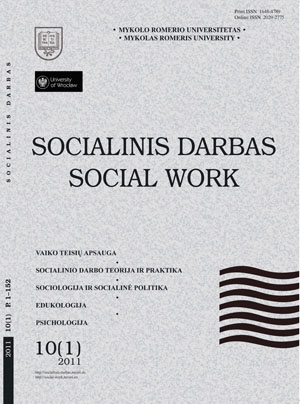Tarpinstitucinės partnerystės ir pilietinio sektoriaus vaidmuo sprendžiant vietos problemas
Formation of Interorganizational Partnerships and the Role of the Civil Sector in Local Settings
Author(s): Jurga Bučaitė-Vilkė, Dovilė MotiejūnaitėSubject(s): Social Sciences
Published by: Mykolas Romeris University
Keywords: Civil society organizations; inter-organizational partnerships; social networks; civic participation
Summary/Abstract: This paper is focused on the analysis of inter-organizational partnership networks between local and national government, business and civil society organizations, emphasizing the collaborative aspects of inter-relations between different sectors. The conceptual approach of inter-organizational networks and resource dependency theory helps to analyze the non-hierarchical forms of interaction between different actors, political and non-political, by establishing coordination and negotiating with each other. The main research problem is framed by the questions: is it possible to develop partnership and negotiation between civil society organizations, governmental bodies and business, is this partnership capable enough to solve the local problems of different social groups; can we recognize the correlation between the modes of collaboration and partnership and the existing profile of civil society organization, including its activities, organizational purposes and available competences? The main empirical evidence comes from the case study of inter-organizational partnership network between non-governmental organization (such as the Lithuanian Association of the Blind and Visually Handicapped (LASS) and its local branches), local and national governmental institutions and business enterprises. Following the empirical results, we can conclude that the interaction between different economic, non-governmental and state actors is fragmented, heterogenic and based mainly on the exchange of various economic, financial and informational resources, rather than on mutual understanding of common goals.
Journal: Socialinis darbas
- Issue Year: 10/2011
- Issue No: 1
- Page Range: 86-92
- Page Count: 7
- Language: Lithuanian

